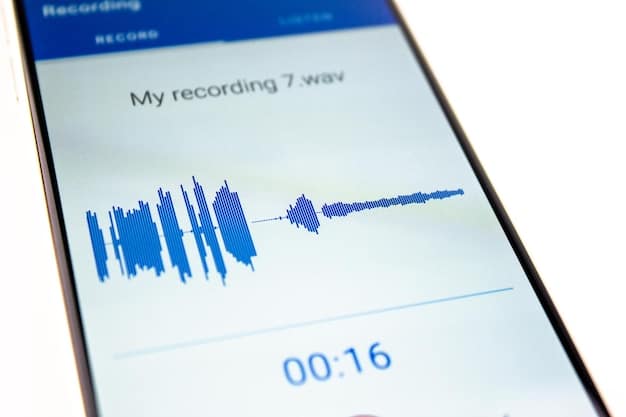Spotify App: 3 Advanced Search Hacks to Discover New Music

Discover new music on Spotify like never before with these 3 advanced search hacks that unlock hidden gems and tailor your listening experience.
Tired of the same old Spotify playlists? Unleash the power of the Spotify app with Spotify’ App: Discover New Music with These 3 Advanced Search Hacks that will revolutionize how you find your next favorite artist or song.
Maximize Your Spotify Experience: Beyond Basic Searches
Spotify has transformed how we consume music, offering a vast library at our fingertips. However, many users only scratch the surface of its capabilities, relying on basic searches and pre-made playlists. Mastering advanced search techniques can dramatically expand your musical horizons.
These tips unveil hidden features and filters, enabling you to discover music tailored to your specific tastes. Let’s dive into how you can elevate your Spotify game.
Understanding Spotify’s Search Operators
Spotify’s search bar isn’t just for typing in artist names and song titles. It also understands specific search operators that can help you refine your results. These operators act as filters, narrowing down your search based on criteria like year, genre, and label.
Why Use Advanced Search Operators?
Using advanced search operators allows you to:
- Find music from specific time periods.
- Discover hidden gems within particular genres.
- Explore the catalogs of your favorite record labels.
- Unearth tracks with specific characteristics, like live performances.

Hack #1: Unleash the Power of “Year:” and “Year:XXXX-YYYY”
Ever wanted to revisit the music from a specific year or era? The “year:” operator is your time machine. This powerful search function allows you to narrow down your search to releases from a particular year or within a range of years.
Discover nostalgic hits or explore how music evolved through time effortlessly.
The Year Operator:
- Year:2005: Finds songs released in 2005.
- Year:1980-1989: Discovers music released throughout the 1980s (from 1980 to 1989).
This is fantastic for curating decade-specific playlists or simply indulging in the music of your youth.
Hack #2: Genre Specificity with “Genre:”
Are you in the mood for a specific genre, but tired of the same mainstream tracks? The “genre:” operator is your ticket to a world of diverse sounds.
Whether you’re craving indie rock, deep house, or experimental jazz, using the genre operator will filter your search to precisely what you’re looking for. Dive deep into your favorite music styles.
Genre Searching:
- Genre:indie rock: Returns indie rock tracks.
- Genre:classical: Finds classical music pieces.
- Genre:electronic: Searches for electronic music.
This is a must for music enthusiasts who want to explore the nuances within various musical categories and uncover artists they might otherwise miss.
Hack #3: Dig Deeper with “Label:”
Record labels often curate a distinct sound or style. If you admire a particular label’s roster, using the “label:” operator can help you discover more artists within their family.
Explore the catalogs of iconic labels and unearth hidden gems that align with your taste.
How to use the label operator
Using “label:” is straightforward:
- Label:Warp Records: Finds artists and songs released on Warp Records.
- Label:Motown: Returns Motown classics.
- Label:Sub Pop: Searches for artists on Sub Pop Records
This is perfect for those who believe in the curatorial power of record labels and are looking to expand their music collection with like-minded artists.

Combining Hacks for Maximum Impact
The real magic happens when you combine these hacks. Pairing different operators refines your search to an incredible degree, making it far easier to find exactly what you’re after.
Here are a few ideas:
Year and Genre
Combine “year:” and “genre:” to find the perfect intersection of time and style. For instance, “year:1995 genre:grunge” will return grunge music released in 1995. This combined approach enables you to pinpoint pivotal moments in musical history.
Genre and Label
Combine “genre:” and “label:” to dive deep into niche sounds nurtured by specific record labels. A search for “genre:electronic label:Ninja Tune” will unearth electronic artists on the Ninja Tune label. This is ideal for exploring the signature sound of labels you admire.
Beyond the Basics: Other Useful Spotify Search Techniques
While the year, genre, and label operators are incredibly useful, Spotify has other advanced search features that should be in your toolkit.
Consider these additional approaches for even more precise searches:
Using Quotation Marks
If you’re looking for a specific phrase, enclose it in quotation marks. This will ensure that Spotify only returns results with that exact phrase. For instance, searching for “Bohemian Rhapsody” will only return results that contain that specific song title.
The “NOT” Operator
Use the “NOT” operator (in uppercase) to exclude certain terms from your search. To find songs about love that aren’t ballads, you could try “love NOT ballad.” This can help filter out unwanted results and focus on precisely what you want.
| Key Point | Brief Description |
|---|---|
| 📅 “Year:” Operator | Find music released in a specific year or range of years. |
| 🎵 “Genre:” Operator | Search for music within a specific genre. |
| 🎧 “Label:” Operator | Discover artists and songs released on a specific record label. |
| ➕ Combining Operators | Use multiple operators to refine search results even further. |
Frequently Asked Questions
Yes, these search hacks work on both the desktop and mobile versions of the Spotify app. You can use any of the search operators directly in the search bar on your mobile device.
No, Spotify search operators are not case sensitive. You can type them in either uppercase or lowercase, and they will still function correctly and filter your search results.
Yes, you can combine multiple search operators to create highly specific search queries. Experiment with different combinations to narrow down your results and find exactly what you’re looking for.
While these hacks significantly improve search accuracy, Spotify’s algorithm may still occasionally include less relevant results. This could be due to the track’s metadata or algorithmic associations.
There is no specified limit to the number of filters you can apply, but it’s practical to use only what helps in a meaningful way. Overly complex queries may sometimes yield limited or no results.
Conclusion
By mastering these advanced search hacks, you can transform your Spotify experience and unlock a world of new music that perfectly matches your tastes. Try them out today and discover your next favorite artist!





